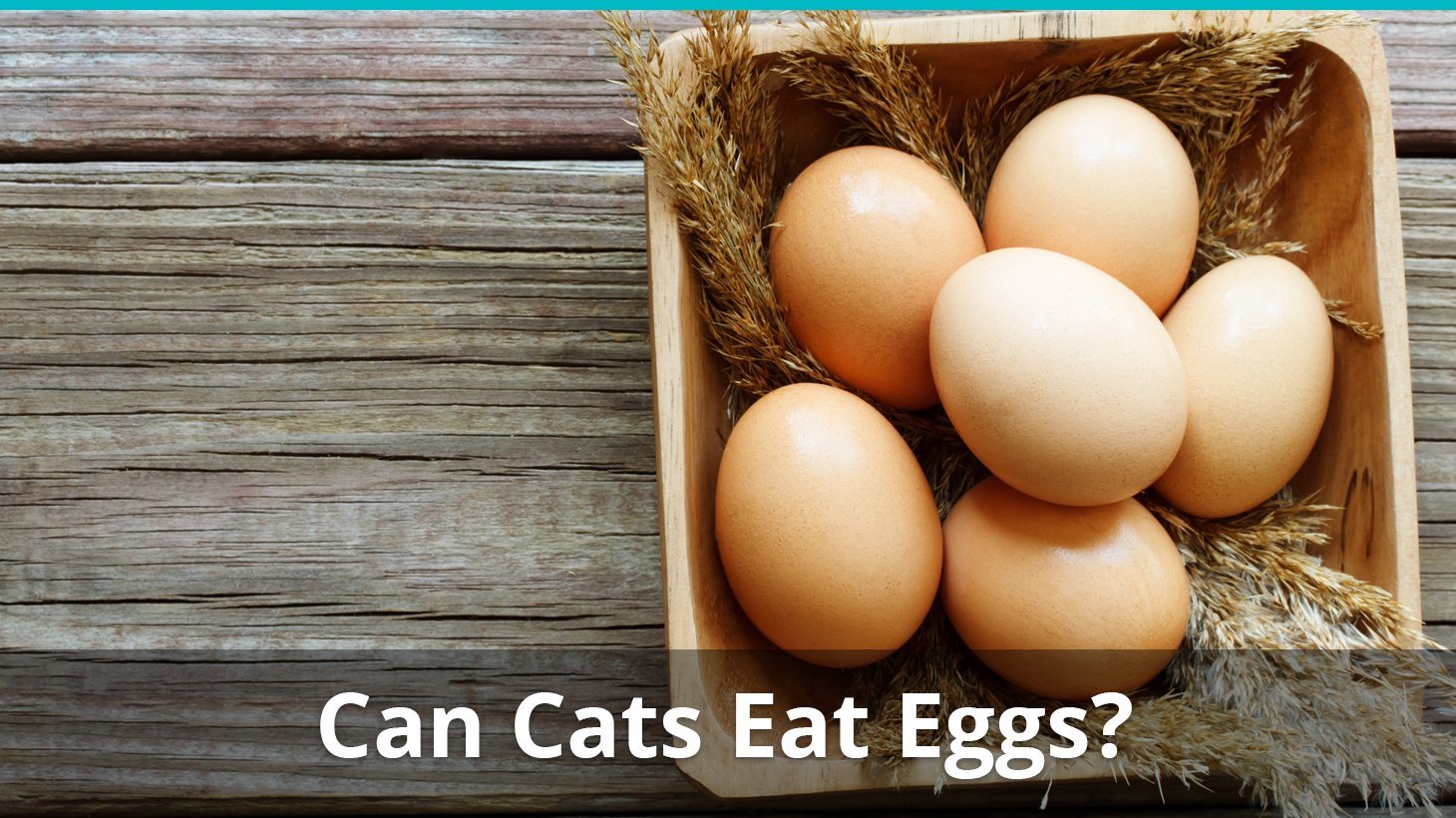Eggs are delicious, healthy and have an irreplaceable role in tons of recipes for a huge variety of homecooked meals.
They are an excellent source of protein, minerals and many vitamins, including A, D and B12. Moreover, eggs contain essential amino acids, which our bodies cannot synthesize on their own.
Many cat owners out there will probably ask the question – if eggs are so good for us, can we give them to our feline pets? Are they safe?
As carnivores, cats thrive primarily on protein. Their bodies need the natural proteins, fats and vitamins derived from real meat. But since eggs are rich on protein and their yolks are high on natural fats, can cats eat eggs safely?
Yes, cats can eat eggs.
Lots of high quality cat food manufacturers include more than just meat in their formulas. Oils, berries, vegetables and some plant-based products – all of these can be found in cat foods as they are quite healthy for your feline friend.
Eggs also fall in that category.
However, as it is with everything else in life, feeding your cat with eggs has its advantages and downsides.
Why Are Eggs Good For Cats And Kittens?
Before we dive into the dangers of giving eggs to your fluffy pal, let’s review some of the nutritional benefits of this food item.
Eggs contain:
- Riboflavin
- Thiamine
- Natural fat
- Amino acids
- Vitamins A, B12, D, E, K
- Lysine and other essential proteins
- Calcium, iron, zinc and other essential minerals
If your malnourished or underweight cat needs a bit of a boost in terms of its immune system and its weight, eggs will be an excellent supplement to its diet. Thiamine, riboflavin and lysine are all crucial nutrients for the feline organism. However, eggs shouldn’t be eaten every single day as they also pose health risks.
When And Why Would Eggs Be Bad Or Unsafe For Cats And Kittens?
Too much egg ingredients can be unhealthy for cats for the same reasons as they are dangerous for people. Although feline furballs thrive on protein, when their organisms can’t process too much of it this results in severely high levels of protein in their urine. This can be particularly problematic for cats suffering from kidney issues.
What’s more, when the body can’t absorb and process the excessive protein, it can be converted to fat. And that contributes to obesity.
Lastly, eggs are quite high on fat. High levels of fats and cholesterol are harmful to cats just as they are to us, human beings. The egg yolks are extremely rich on calories and cholesterol. A medium-sized egg contains an average of 7.5g protein and 5.1g fat. In other words, the natural fats are almost as much as the healthy proteins.
What Types Of Eggs Can Cats Eat?
Cooked Or Raw? Scrambled? Yolk Or White?
Many pet parents opt for homecooked meals or for raw diets when it comes to feeding their feline furballs.
Raw eggs in such meals must be completely off-limits at all times.
They contain tons of bacteria, including deadly ones like E. coli and Salmonella. Not only can they be fatal, but the cat can transfer them to the people living under the same roof.
Cooked eggs, on the other hand, are safe.
You can fry, poach, bake, scramble, or boil the eggs prior to giving them to your kitty. As long as they don’t contain excessive oils, toppings like ketchup and mayo, seasoning or any toxic plants and herbs, your cat can eat them.
The egg whites are better for cats than the yolks in terms of nutritional value. Your pet will benefit from the vitamins and minerals in the whites much more than from the high levels of fats found in the yolks.
How To Feed Eggs To Your Cat?
You should never make eggs a constant ingredient of your cat’s daily diet. Eating eggs every single day can have fatal outcomes for your furball! On a brighter note, you can mix a cooked egg in your cat’s store-bought cat food or in its homecooked or raw diet.
The easiest way to feed eggs to your cat is to mix some of it with its food. Felines are whimsical by default, so chances are, your pet will simply frown at the sight of a plain cooked egg unless it comes with something else, which it already knows and likes.
Eggs can be given as a treat every now and then. Keep in mind that giving your pet an entire egg equals to a human being eating several eggs a day.
You can also include eggs as a supplement to your pet’s food for additional protein boost. If your cat is underweight or in need of more nutrients, it will benefit from cooked egg whites. Just keep in mind that overweight felines or cats suffering from kidney problems shouldn’t be given eggs, and that no kitty out there should eat eggs on daily basis.


Raw egg whites also contain an enzyme called Avidin which inhibits cats from absorbing vitamin B7. Cooked are ok.